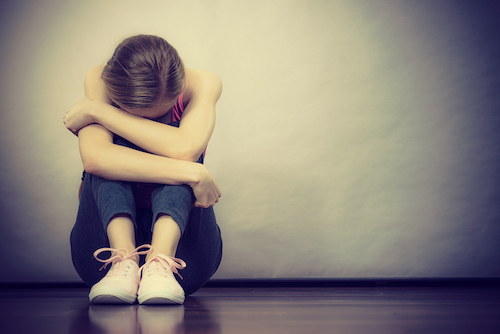 A significant number of suicidal teens being treated in a psychiatric emergency department say that watching Netflix series “13 Reasons Why” had increased their risk for suicidal tendencies.
A significant number of suicidal teens being treated in a psychiatric emergency department say that watching Netflix series “13 Reasons Why” had increased their risk for suicidal tendencies.
Researchers from the University of Michigan asked suicidal teenagers whether the series had contributed to their suicidal thoughts and feelings.
“13 Reasons Why” became a hit drama on Netflix, but has been the subject of controversy due to its depiction of suicide. The plot follows the story of a 17 year old who before taking her own life, records tapes with 13 different reasons why she committed suicide. Mental health professionals have raised concerns over the negative impact the show may have on vulnerable young people.
“In our psychiatric emergency services we were seeing an uptick in the volume of adolescents presenting with suicidal thoughts and behaviors in the months following the release of season one. Other hospitals were reporting the same thing, with some youth saying that watching the show had negatively impacted their mental health. We were inspired to talk to some of these youth and their parents,” Dr. Victor Hong, lead author of the study and medical director of psychiatric emergency services at Michigan Medicine, told Theravive.
Hong says the problem does not lie with bringing up the topic of suicide, but rather the way in which the issue is portrayed in the series.
“In the case of ‘13 Reasons Why,’ many mental health professionals are concerned about the depiction of suicide as revenge against those who had done bad things to the main character, the fact that the adults in the show are portrayed as quite unhelpful, and that there was a sort of inevitability around the main character’s suicide,” he said.
Of the 87 young people who participated in the study, half had watched at least one episode from the series. Most of those who had watched the show were aged between 13 and 17. Of those who had watched the program, around half said the themes of the show had contributed to their suicide risk.
“There are limitations to what we can interpret from self-reports from teens, but half of the youth that we spoke to felt that watching the show did increase their suicide risk. At the very least, we should not be ignoring what they are saying,” Hong said.
Of the young people who said the show had contributed to their feelings of suicide, many said they identified strongly with the show’s main character, Hannah. Hannah is a teenager who has been through sexual assault, bullying and anxiety and ultimately commits suicide.
The study, published in the Psychiatric Services journal adds to a growing body of research into how vulnerable youth may be reacting to the controversial Netflix series.
Hong and colleagues found that the majority of the young people surveyed said they watched the show alone. 81 per cent of those surveyed said they were more likely to discuss their reaction to the program with their peers. Only 35 per cent said they would discuss the program with their parents.
This is contrary to a report commissioned by Netflix that suggested 71 per cent of young people in the Unites States who were surveyed would talk to a parent about the show.
Hong argues this may indicate a difference in the ability of a young person who is at high risk of suicide to reach out to a parents, when compared with a young person not deemed high risk. Those who may be in greatest need of support, he says, may be least likely to reach out for help.
The second season of “13 Reasons Why”, which was made available on Netflix in May, has a disclaimer that urges young viewers to watch the program with an adult they trust. The disclaimer also emphasises the importance of seeking help.
Despite this disclaimer, few of the parents who were surveyed by the University of Michigan researchers had watched the series. Some of the parents were also unaware their child had watched the show.
“ When considering the issue of youth suicide, we know that lack of connection with others is a central theme. One of the hopes is that if parents were more engaged with their kids, then at least the topics of depression, suicide, and sexual assault could be discussed. We feel that if at all possible, that parents of vulnerable youth be aware of what media they are consuming. Then if there are concerns that arise, that can lead to the youth getting the help that they need,” Hong said.
Although the study doesn’t confirm the series is increasing teens levels of suicide, Hong says the results of the study suggest more attention should be paid to the impact programs like “13 Reasons Why” have on vulnerable or impressionable young people.
He says it may not be the case that shows like “13 Reasons Why” will make a mentally healthy young person suicidal, but rather it may have a negative impact on at risk youth who are vulnerable and already on edge.
“We feel that certain types of media can have significant effects on the mood states, and more concerning, behaviors, of vulnerable individuals. Further discussion about how to best portray the topics of mental health and suicide in the media clearly need to be expanded. Parents are recommended to be aware of what their kids are watching, particularly if they are already at increased risk for suicide,” Hong said.
Elizabeth Pratt is a medical journalist and producer. Her work has appeared on Healthline, The Huffington Post, Fox News, The Australian Broadcasting Corporation, The Sydney Morning Herald, News.com.au, Escape, The Cusp and Skyscanner. You can read more of her articles here. Or learn more about Elizabeth and contact her via her LinkedIn and Twitter profiles.